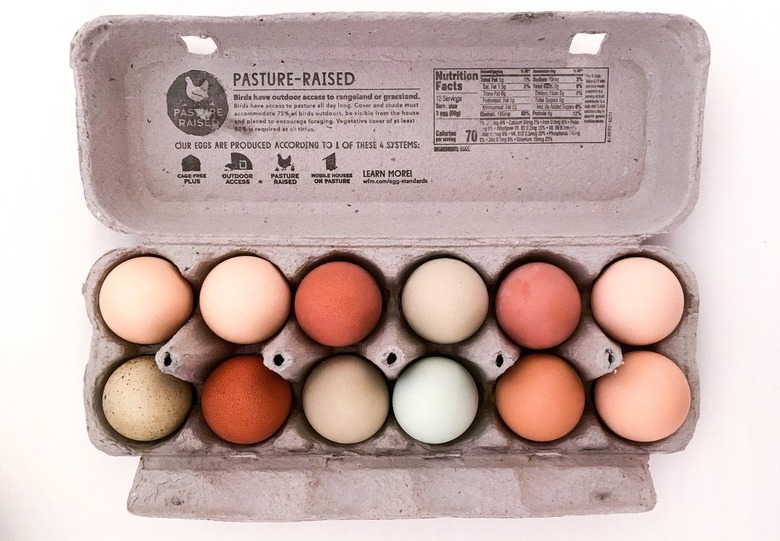This Is What Those Confusing Egg Carton Labels Actually Mean
Shopping for eggs at the grocery store isn't as easy as it seems. Do you go with cage-free or pasture-raised eggs? What about a carton with a certification on it? And really, what do all these labels mean anyway? We reached out to an expert to find out, so that we can all be more informed next time we pick up a carton of eggs.
When it comes to chickens' living conditions, John Brunnquell, Blue Sky Family Farms's president and CEO of egg innovations, tells Hunker to keep an eye on the following:
- Caged: This means that there are four to 12 hens in a confined cage with 60-144 square inches of space per hen.
- Cage free: All hens are confined to a building, never having access to the outdoors. Generally speaking, there's about one square foot of space per bird.
- Free range: Hens have access to the outdoors. Humane Farm Animal Care (HFAC) certified pastures have two square feet per bird, outdoors. American Human (AH or AHA) certified pastures have 21.8 square feet per bird, outdoors.
- Pasture raised: Hens have access to a living space that provides feed, water, and a place to lay eggs. All major certifiers are at 108 square feet per hen outdoors.
As for labels that explain what hens are fed, Brunnquell outlines these terms:
- No claim: You can assume animal byproducts are part of their diet.
- Vegetarian fed: This means there are no animal byproducts in their diet.
- Non-GMO: Hens are fed grains that are not genetically modified.
- Organic: The birds are fed non-GMO grains that have been raised organically.
With all of this information in mind, what labels should look out for when it comes to ensuring that chickens are being treated as humanely as possible? "Always buy eggs that carry a third-party certification for animal welfare," Brunnquell advises. "American Humane allows the most room per hen for free range, while both AHA and HFAC are good certifiers for pasture raised."
Now we are ready to take on the egg section at our local grocery store.
